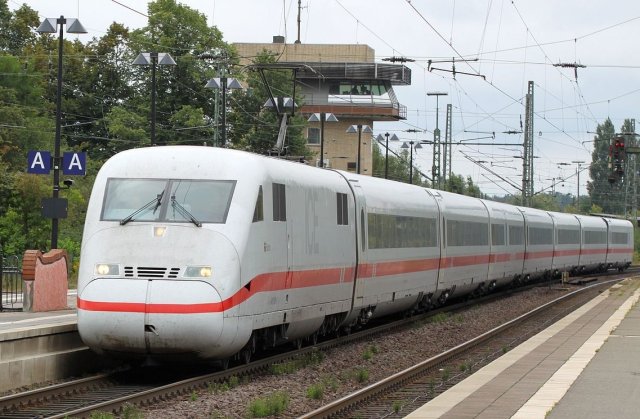
Thousands of German train drivers and railway workers began a week-long strike on May 5, the longest in the country’s post-war history.
About two thirds of Germany’s long distance trains and a third of regional trains have been cancelled, with trains in the eastern region around Halle, Leipzig, and Dresden reduced to about 15% of services.
Some subway systems were also affected, including in Hamburg and Berlin.
Deutsche Bahn (DB) carries a fifth of Germany's freight transport — about 1 million tonnes per day — as well as moving 5.5 million passengers daily.
During earlier railway strikes, economists from the Federation of German Industries estimated that extended train strikes could cost Germany's economy "up to €100 million per day". Employers' organisations condemned the strike.
In November last year, train drivers held a three-day strike, the longest since a national strike in 2007.
In fact, the latest industrial action is the eighth in just 10 months of bargaining between the Gewerkschwaft Deutscher Lokomotivführer (GDL) union, which represents around 20,000 drivers, switch-yard engineers and conductors, and DB.
The GDL is demanding a 5% pay rise, a 50-hour annual limit on overtime and a reduction in the working week from 39 to 37 hours. The point of contention is a demand by the GDL to independently represent and bargain for about 17,000 train workers in other positions such as train stewards.
DB, which has about 200,000 employees in Germany, has offered train drivers a staggered 4.7% wage rise plus a one-off payment of €1000, but has refused to allow the GDL to freely negotiate on behalf of other rail workers.
DB has argued that if GDL is to represent other DB employees, it would have to accept the same pay deals agreed to with the other railway union, the Eisenbahn- und Verkehrsgewerkschaft (EVG), which represents about 213,000 workers.
GDL has rejected DB’s offer, and has also refused an offer of arbitration, arguing that the workplace rights it is seeking are enshrined in law and are not up for negotiation.
The rail strike is part of a growing wave of industrial unrest in Germany.
On May 2, postal workers held another strike as part of their ongoing dispute with Deutsche Post, which plans to expand parcel delivery services using a lower pay scale than that applied to regular postal workers.
Meanwhile, in Berlin, bank ATMs are running out cash, as a dispute between the Ver.di union and a local security company has brought an end to cash deliveries in the city.
In March, pilots for the national airline, Lufthansa, went on a four-day strike over working conditions, leading to 220,000 flight cancellations. That action followed a two-day strike in February by pilots for Lufthansa’s budget subsidiary Germanwings.
The GDL has rejected the DB's latest offer, and the rail corporation is seeking to resolve the stand-off by pursuing third-party arbitration, but a piece of legislation is making its way through parliament that would restrict workplace bargaining and industrial rights to the largest union in a workplace alone.
This legislation — due to come into effect in July — is in part a reaction to a 2010 ruling in Germany’s top labour court that it was legal for companies to negotiate with more than one union.
In recent years industrial action in Germany has risen significantly, with days lost to industrial action rising from 25,000 in 2010 to nearly 155,000 in 2014.
Low unemployment levels and labour shortages in some industries have strengthened the bargaining position of workers.
[A longer version can be read at Duroyan Fertl's blog.]
Like the article? Subscribe to Green Left now! You can also like us on Facebook and follow us on Twitter.